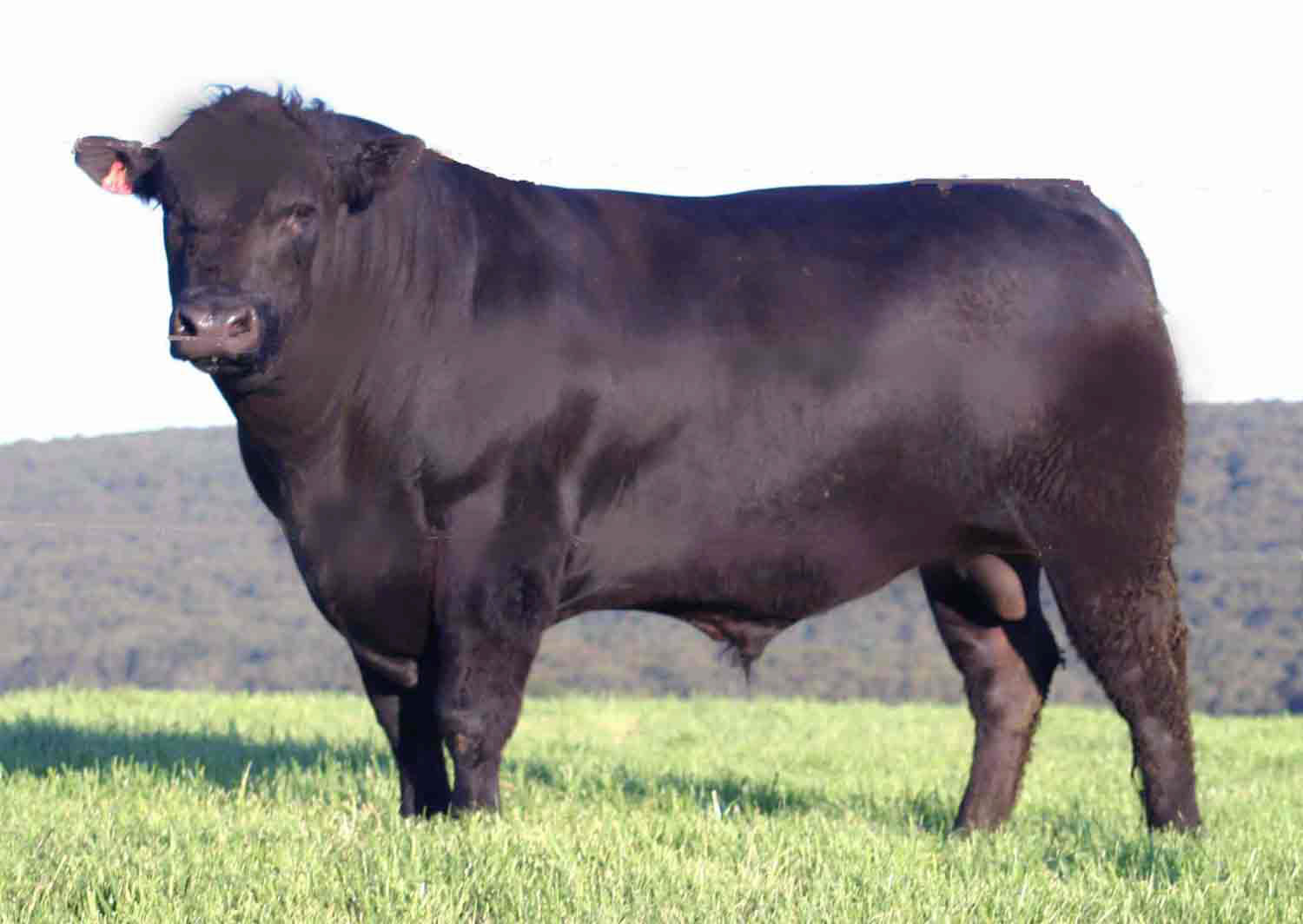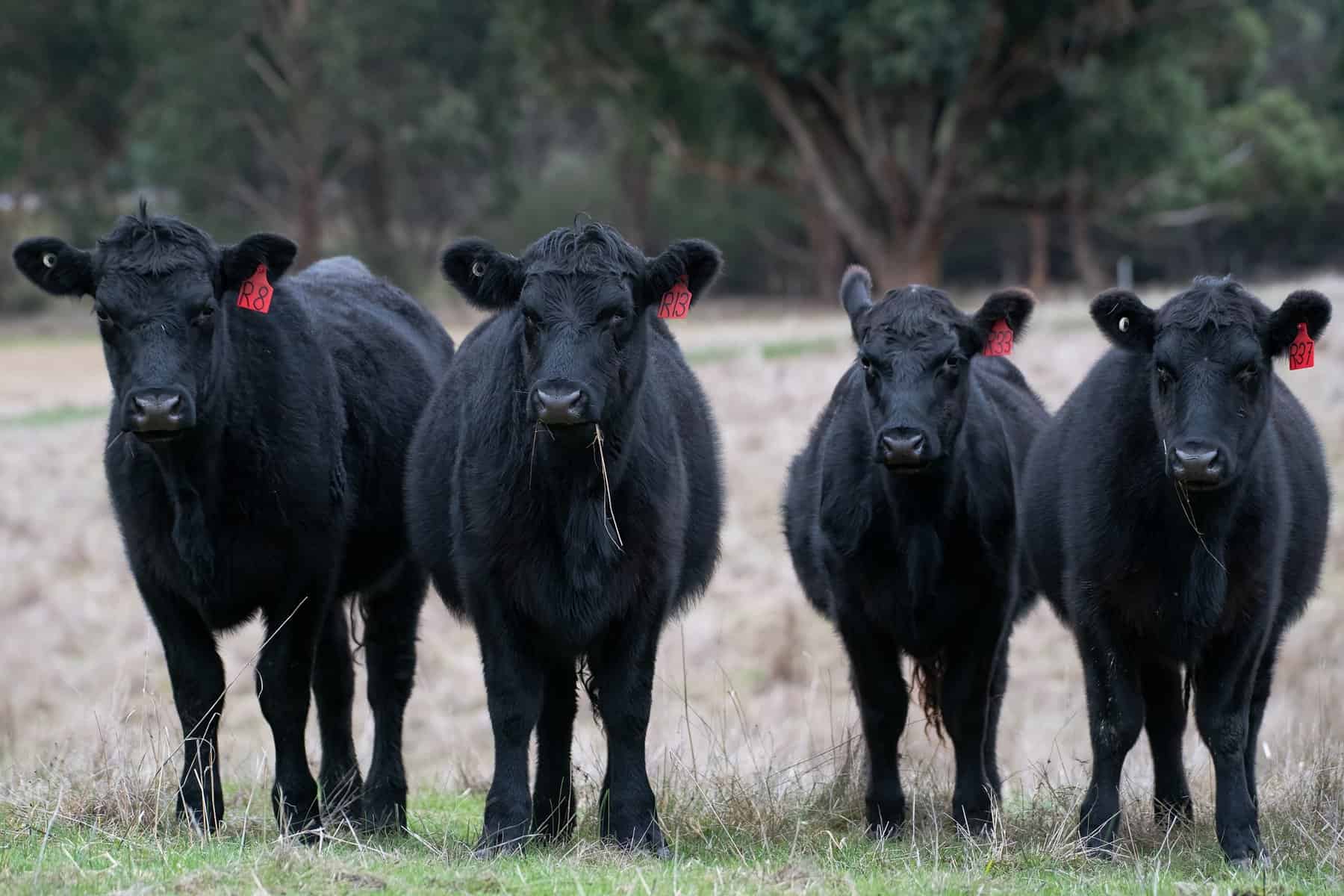When you think about top-tier beef, what name often pops into your head? For many, it's "Angus," a name that has become pretty much a byword for quality and a truly good eating experience across kitchens and dining spots everywhere. Yet, the story of this amazing animal, which we often just call "Angus," is actually much deeper than just what shows up on your plate. We're talking about a history that goes way back, rooted deeply in the green, rolling lands of Scotland, a past that shaped a whole big industry.
This particular kind of cattle, known for its very distinct qualities, has carved out a really significant spot in the world of farm animals. It's a tale of special genetic traits, careful raising, and a strong commitment to helping an industry that feeds millions of people. From its earliest beginnings to its widespread presence today, the Angus story is, in some respects, a true mark of agricultural progress and smart thinking.
So, as we look into the unique features and the lasting influence of this breed, it's worth taking a moment to consider the very broad reach it has. This article will, in a way, pull apart the key things that make Angus cattle so important, looking at how their heritage keeps on shaping their impact on how we get our food.
Table of Contents
- What Makes Angus Jones Cattle So Special?
- Where Did Angus Jones Cattle Come From?
- How Does Angus Jones Beef Stand Apart?
- What Role Does the Angus Jones Association Play?
- The Angus Jones Influence on American Tables
- Understanding Angus Jones' Genetic Gifts
- The Look of Angus Jones Cattle
- Angus Jones and the Future of Food
What Makes Angus Jones Cattle So Special?
You might wonder, what is it about this specific type of cattle that makes it so widely recognized and, well, sought after? It's pretty much all about a combination of traits that breeders have worked on for a very long time. When people talk about Angus, they're often thinking about a promise of consistency and a really satisfying eating experience. These animals, you see, have certain characteristics that just make them stand out from the crowd. For instance, they tend to be naturally good at producing meat with a certain kind of quality that many people truly appreciate. It's not just about how big they get or how much meat they provide; it's also very much about the actual texture and flavor of that meat. So, it’s really a whole package that sets them apart.
Their popularity, in some respects, comes from how well they perform in various environments and how reliably they produce a desirable product. This means that whether you're a rancher looking to raise animals that grow well, or a consumer looking for a particular kind of meal, the Angus name often comes up. There's a lot of thought and effort that goes into maintaining these qualities, ensuring that the reputation for a particular kind of beef stays strong. That's actually a big part of their appeal, too it's almost a guarantee of what you're getting.
The qualities that make them special aren't just by chance; they're the result of generations of selective breeding. This means choosing specific animals to reproduce based on their ability to pass on desirable traits, such as good growth rates and, importantly, the characteristics that make their meat taste good. This kind of careful work has meant that the Angus breed has become very reliable in terms of what it delivers. So, when you see "Angus" on a menu or at the store, it's often associated with a certain level of expectation, and that's not by accident. It's really quite a deliberate outcome.
Where Did Angus Jones Cattle Come From?
To really get a feel for the Angus breed, we have to look back to its beginnings, which are actually in Scotland. The American Angus, as we know it, comes from the Scottish Aberdeen Angus population. It's a rather interesting lineage, with its roots firmly planted in specific parts of Scotland. The original cattle that formed this breed were native to certain counties: Aberdeen, Banff, Kincardine, and Angus counties themselves. You can just imagine the green, misty landscapes where these animals first roamed, developing their unique traits over time. So, their heritage is very much tied to those particular regions, and that's a pretty important piece of their story.
It’s important to remember that while the Scottish Aberdeen Angus population might have had some variation in color, the American Angus breed has a very specific look. It may only be black. This is a distinguishing feature that sets it apart visually from some of its ancestors or cousins across the ocean. This choice for a uniform black color was a decision made as the breed was developed and refined. This makes them quite recognizable, too it's almost their signature color, you could say. Their ancestry, in some ways, is a bit cloudy, but the breed does appear closely related to other kinds of cattle from that general area.
The name itself, "Aberdeen Angus," refers to this specific Scottish breed. It’s a way of recognizing its place of origin and its distinct identity. The development of the breed in these Scottish counties was a gradual process, shaped by the local environment and the needs of the farmers there. Over time, as people started to understand the value of these animals for their meat, they began to be more systematically bred. This kind of careful development, you see, laid the groundwork for the breed's eventual popularity far beyond Scotland's borders. It's a history that, in a way, speaks to the long process of animal husbandry.
How Does Angus Jones Beef Stand Apart?
So, what exactly is the real difference between what we call "Angus beef" and, well, just "regular beef"? It mostly comes down to the breed of the cattle itself. Angus is a specific kind of cattle, as we've discussed, that naturally comes from Scotland. It has a well-known reputation for its superior meat quality, and that's a pretty big deal in the food world. When people talk about Angus beef, it hardly needs any introduction, does it? It’s widely celebrated for its very fine marbling texture and its truly wonderful eating qualities. This marbling, which is the tiny flecks of fat within the lean muscle, is a key reason why it tastes so good.
This marbling is a rather important characteristic. It helps to keep the meat moist and adds a lot to the flavor when it's cooked. It's what gives Angus beef that melt-in-your-mouth feel that so many people look for. The presence of this marbling is something that sets it apart from other types of beef where this characteristic might not be as pronounced. You know, it’s a genetic trait that these animals are known for, and it's something that makes a noticeable difference on the plate. So, when you're enjoying a piece of Angus beef, you're actually experiencing the result of specific genetic advantages.
Another interesting point is how the Angus cattle manage to perform even with a minimal amount of days on feed. This means that they can repeatedly produce that high-quality meat without needing an extended period of intensive feeding, which is pretty efficient. This efficiency, coupled with their consistent quality, makes them a preferred choice for many in the beef business. It's a combination of their natural genetic makeup and how they are raised that contributes to their reputation. That, in a way, is a big part of their enduring appeal, too.
What Role Does the Angus Jones Association Play?
The American Angus Association, you know, is a really big player in the beef world. It stands as the nation's largest group focused on keeping track of beef cattle lineages, with over 30,000 members, which includes both adults and younger folks just starting out. Their main aim, really, is to help out the beef cattle industry in a big way and to see it grow. They're involved in all sorts of things, from making sure the records are accurate to promoting the breed's qualities. It's a rather comprehensive effort, to be honest.
This association does a lot more than just keep a list of cattle. They play a very active part in guiding the industry. Their work involves setting standards for the breed, providing resources for breeders, and even doing research to improve the cattle's traits. This kind of organized effort helps to ensure that the Angus breed continues to produce the quality meat it's known for. It's a pretty vital role, actually, in maintaining the breed's reputation and its economic importance. They're, in a way, the guardians of the Angus legacy.
For the members, both seasoned ranchers and those just getting their start, the association offers support and a sense of community. This means access to information, educational programs, and a network of other people who are passionate about Angus cattle. This support system is, you know, quite helpful for anyone involved in raising these animals. Their efforts to "increase" the industry's reach and quality are constant, showing a dedication to the long-term health of the beef sector. It's a collaborative effort that really makes a difference.
The Angus Jones Influence on American Tables
Because Angus is, in fact, the most common breed of cattle found in the United States, you can feel pretty confident that a good portion of the meat you buy is Angus, or at least has some Angus in its background. This widespread presence means that the qualities associated with Angus beef have become very familiar to American consumers. It's not just a niche product; it's something that many people encounter regularly in grocery stores and restaurants. So, its influence on what we eat is, you know, quite substantial.
This popularity isn't just a matter of chance; it's a reflection of the breed's adaptability and its ability to consistently produce desirable meat. Farmers and ranchers across the country have chosen Angus cattle because they perform well in various climates and production systems. This means that whether you're in the Midwest or the South, you're likely to find Angus cattle being raised. That widespread adoption, you see, has made it a staple in the American food supply. It's pretty much everywhere, in a good way.
The confidence consumers have in buying Angus meat is a direct result of this consistency and the breed's established reputation. When you pick up a package labeled "Angus," there's a certain expectation of quality that comes with it. This trust has been built over many years, through the efforts of breeders and the consistent performance of the cattle themselves. So, the Angus influence on American tables is, in some respects, a story of reliability and consumer satisfaction, which is quite important for the industry.
Understanding Angus Jones' Genetic Gifts
Genetically speaking, Angus cattle show some truly unique traits that really make them stand out from other kinds of breeds. Many of these characteristics are directly linked to the animal's beef quality, which is, you know, a big part of their appeal. For example, Angus cattle are well-known for their natural ability to develop a certain kind of marbling, which we talked about earlier. This isn't just a random occurrence; it's something


